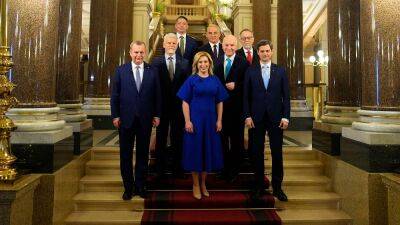Nations agree landmark deal for biodiversity at COP15: What does it mean for nature?
A historic deal for nature has just been made at the UN biodiversity conference in Montreal, Canada.
Agreed early on Monday, it is the most significant effort yet to protect the world’s land and oceans and provide finance to prevent biodiversity loss in the developing world.
The UN biodiversity conference - known as COP15 - has been considered the “last chance” for nature's recovery. But throughout the summit, there were disagreements about the strength of commitments and where funding will come from.
Despite last-minute objections from the Democratic Republic of Congo, a deal was signed by nearly 200 countries early this morning (19 December).
“In 2019, scientists sounded the alarm that biodiversity is declining at rates unprecedented in human history and urged global leaders to boldly act,” says Brian O’Donnell, director of the conservation group Campaign for Nature.
“After working through years of a global pandemic and economic and social upheaval, today in Montreal the international community has come together for a landmark global biodiversity agreement that provides some hope that the crisis facing nature is starting to get the attention it deserves.”
Called the Kunming-Montreal Agreement, the deal has been compared to the Paris Agreement's commitment to keeping global warming below 1.5C.
One of the most significant parts of the pact is an agreement to protect 30 per cent of nature by 2030. This ‘30x30’ target is one of the biggest land and ocean conservation commitments in history.
The deal includes a pledge to reform $500 billion (€471 billion) of environmentally damaging subsidiaries. $30 billion a year by 2030 for conservation in the developing world and protections for Indigenous peoples’ rights are also part of the
Read more on euronews.com

 euronews.com
euronews.com


















